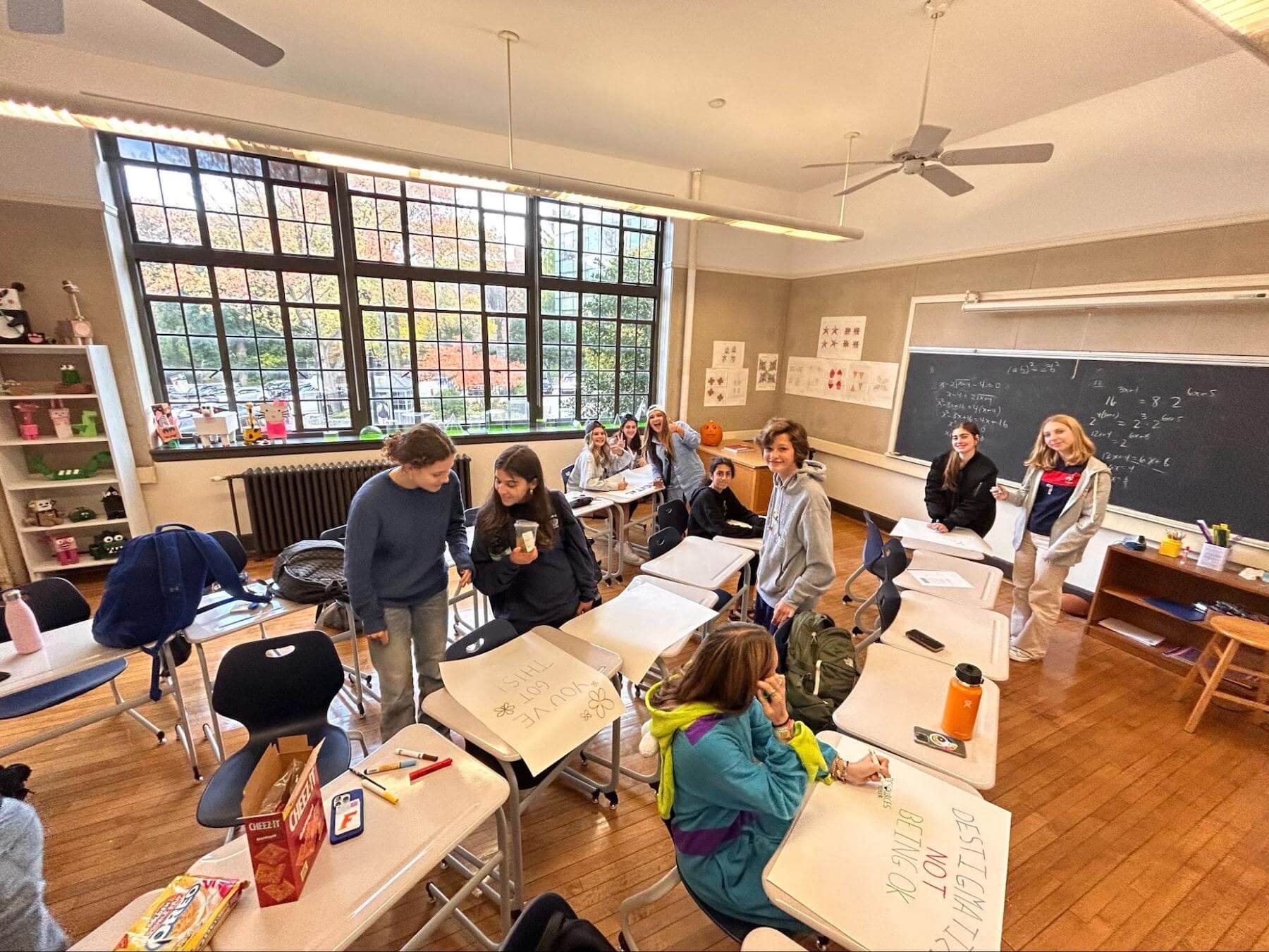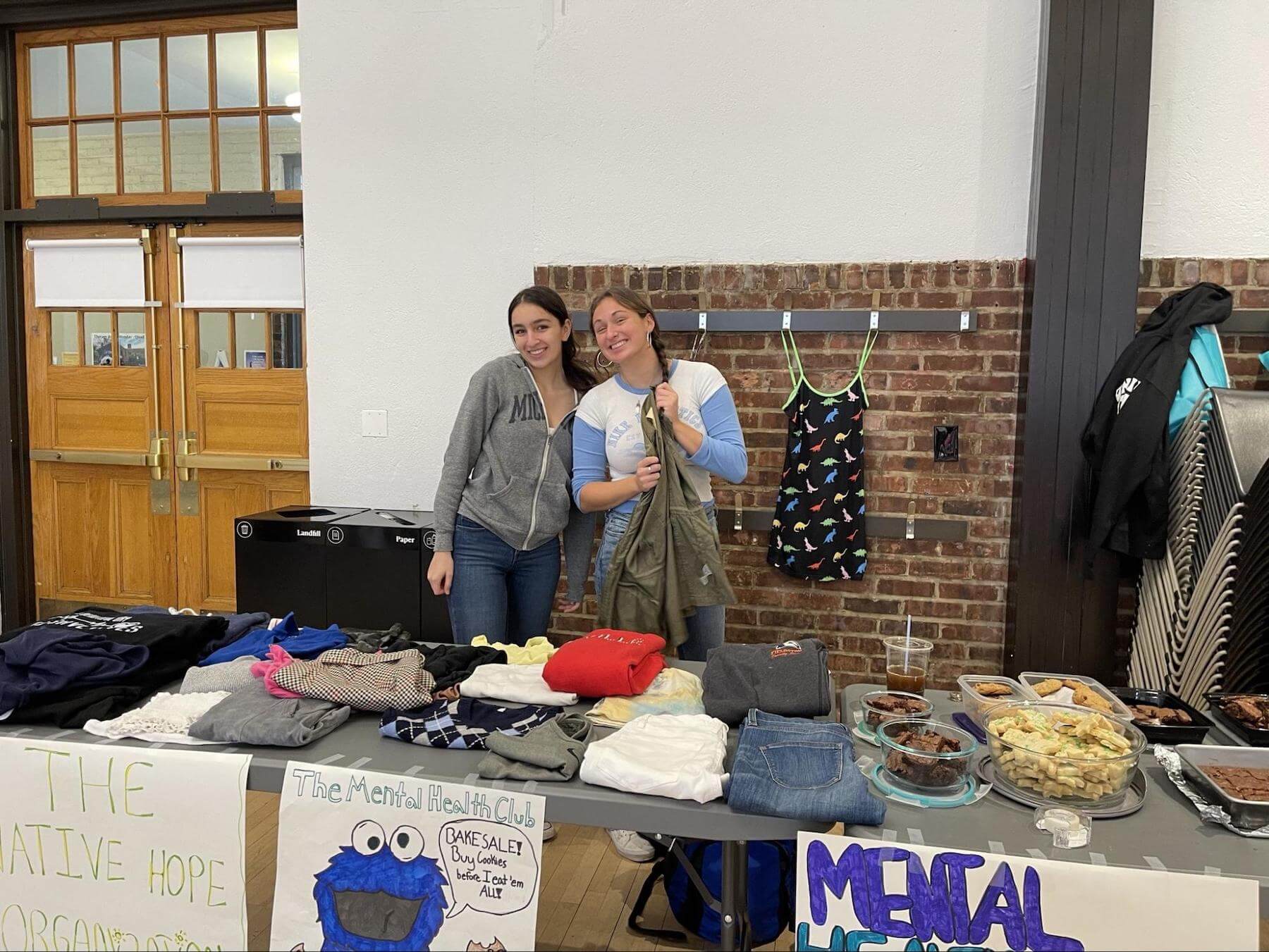High school students are busy! They often balance schedules filled with academic and athletic commitments, family obligations, jobs, and social events. While this isn’t new, the COVID-19 pandemic, its experience of mass isolation, and the global aftermath have greatly affected student health and wellness. Given these demands on students’ social, physical, and mental lives, our Health and Wellness faculty saw a need to update student health programming, offering students more support and helping them to alleviate and cope with stress.
The original health curriculum, formed about seven years ago, revolved around more traditional topics of substance use and abuse, birth control, and decision making. KC Cohen, Fieldston’s Middle and Fieldston Upper Health and Wellness Lead, says, “With the addition of classes on stress management and mental health, we aim to help students understand the sources of poor mental health, the impact of stress on the body, how and why mental states vary and can impact workload and relationships, and how to better manage it all.”
“In 9th Grade health, we have made an effort to incorporate tangible coping tools through the introduction of a few key dialectical behavior therapy (DBT) skills,” Cohen says. These DBT modules are centered around mindfulness, distress tolerance, interpersonal effectiveness, and emotional regulation.
“We’ve talked about why it is important to not view a stress response as a bad thing,” says Physical Education and Health Teacher Heather Bonilla. “Students have gained an understanding that the stress response is there to help them perform better and be more alert or hyper-focused. If they can recognize the stress response and utilize stress management techniques, such as box breathing or body scans, they can even use the stress response to their advantage.”
The course has also introduced different types of mindfulness, breathing exercises, muscle relaxation, and yoga practices. “The kids seem to appreciate the exercises that require more mental and physical instruction,” Bonilla says. “They talk about the breathing exercises, especially box breathing, and how they are starting to incorporate those techniques into their routine. It helps them stay calm before exams and sports competitions.”
“Because I am transitioning from middle school to high school, stress levels have been high,” says India H. ’27. “With the increased workload and different social aspects, it can be really hard to function when there is so much on your plate. The meditation exercises have helped a lot with keeping me from getting overwhelmed. I do various breathing exercises that Ms. Bonilla taught us to calm my nerves and give me a clear mindset going into a test.”
While 9th Grade is mainly when Fieldston Upper students focus on learning about health, the Health and Wellness team is finding opportunities for other grades to explore helpful practices. In addition to touching upon the concepts in Fieldston Middle’s current health rotation, the team also plans to discuss the application of DBT skills within the seniors’ transition program.
In an upcoming grade meeting, the Class of 2024 will learn about the distress tolerance skill of TIPP (temperature, intense exercise, paced breathing, and paired muscle relaxation). These activities, such as the “T” exercise of splashing cold water on one’s face, help to reduce one’s heart rate in stressful moments and ultimately change one’s physiology. The class will also look at and apply the power of gratitude in an all-grade exercise.
Students are also promoting positive mental health through their own actions. Through the Mental Health club, they’ve created additional outlets to discuss healthily managing their thoughts and feelings.

“More students have started to be open about their mental health in the club from a growth mindset perspective,” Mental Health club leaders Caitlin N. ’25, Noor A. ’24, Liliana H. ’24, and Mila K. ’25 share. “While they are talking about the complications and struggles of their own mental health, they have also begun to think of helpful, useful solutions for each other.”
Often holding bake sales to support mental health organizations and charities, the club members have also helped organize Fieldston Upper’s upcoming Mental Health assembly, featuring a psychiatry resident physician’s presentation about positive psychology and developing a growth mindset.

“This year, by inviting a speaker, we’re hoping to help students develop skills to help themselves when they’re feeling overwhelmed, depressed, anxious, or any other common emotions teenagers experience,” the leaders share. “Stress that kids don’t always acknowledge and that can build up may one day explode in the worst ways, which is not a healthy way to emote.”
“Mental health is something that everyone has, forever, and needs to take care of at all times in their life,” India adds. “There is no life without stress; they go hand in hand. I think it is important for all children to learn ways to help manage their stress and better their mental health as a whole.”


